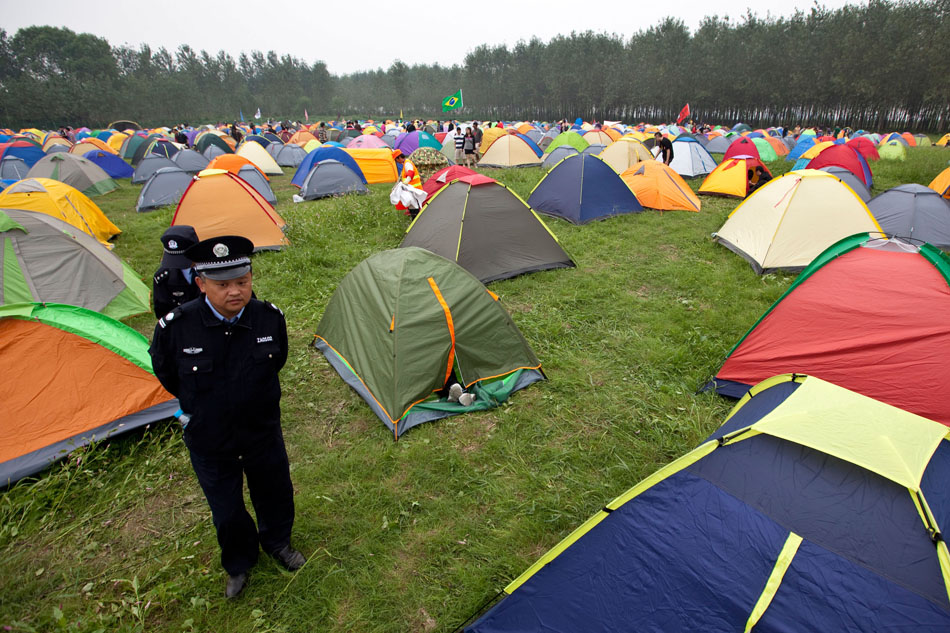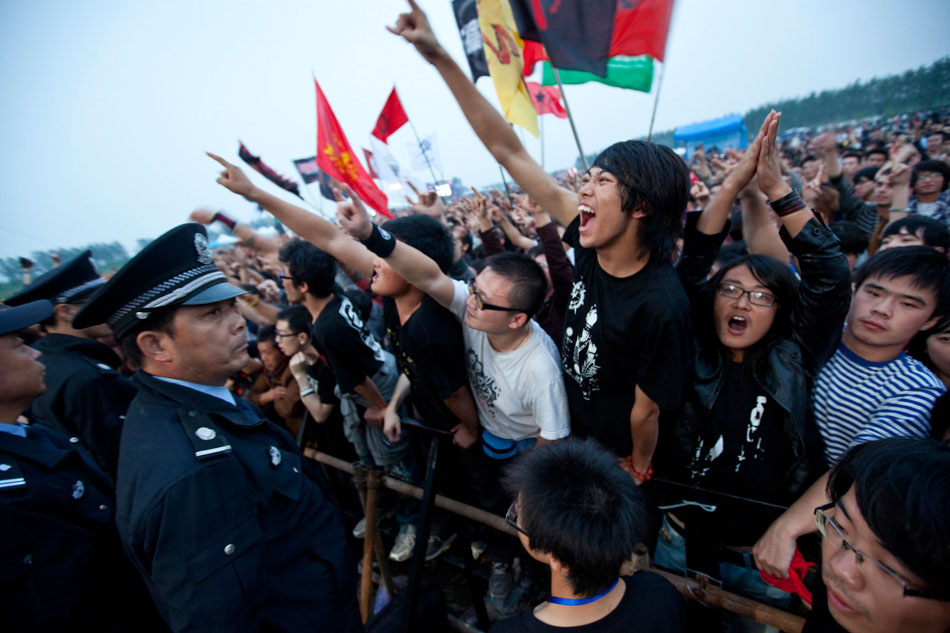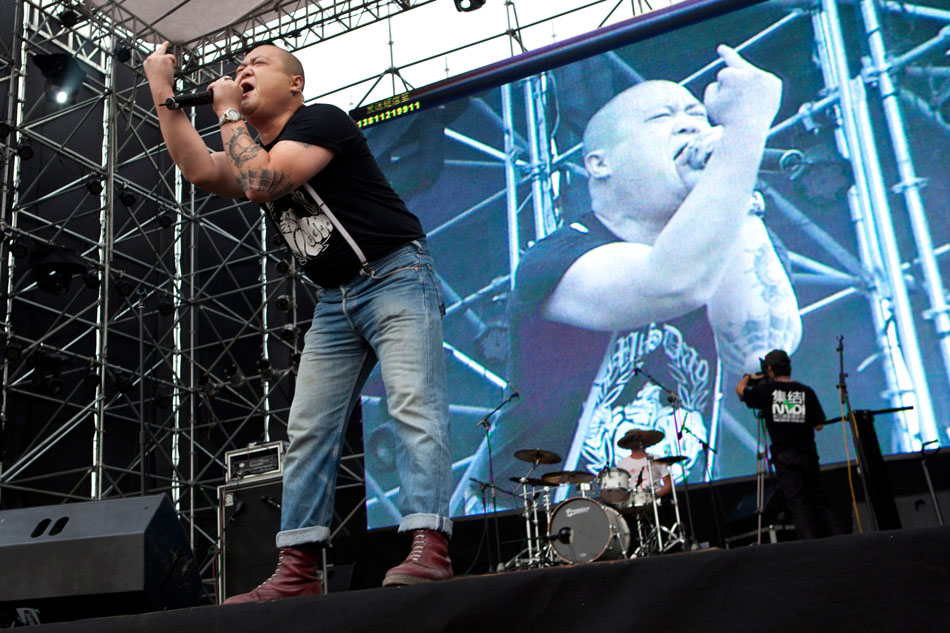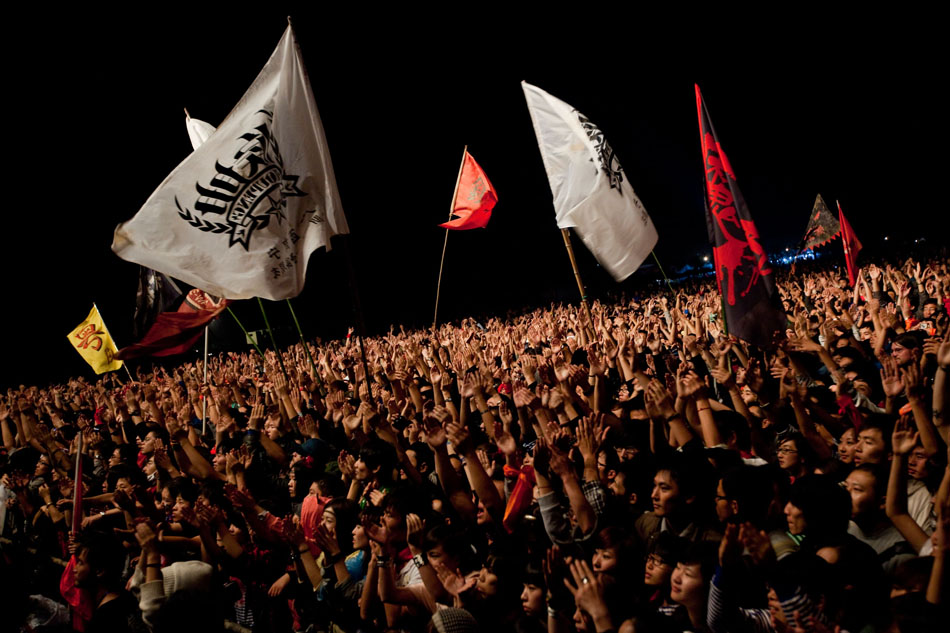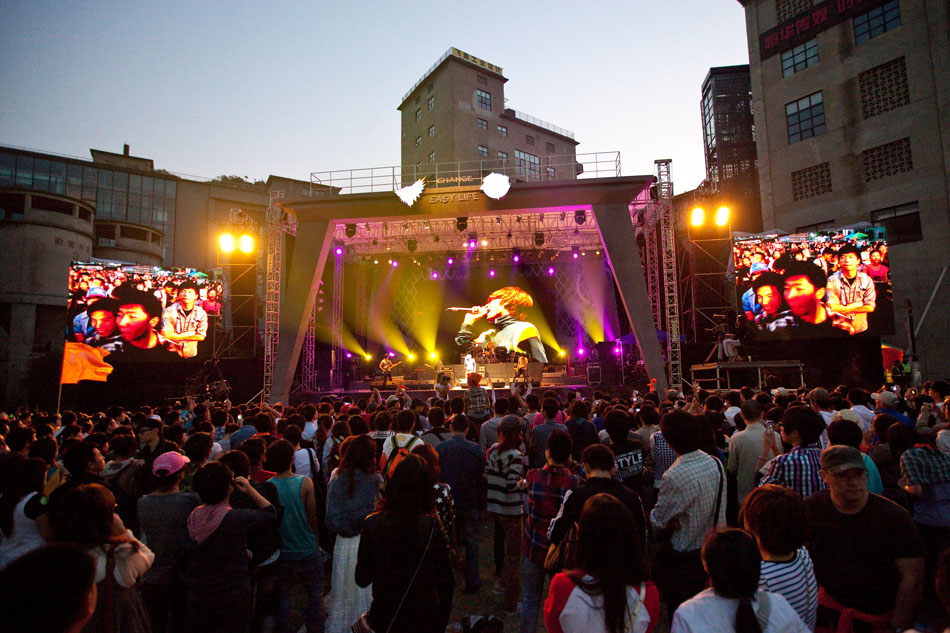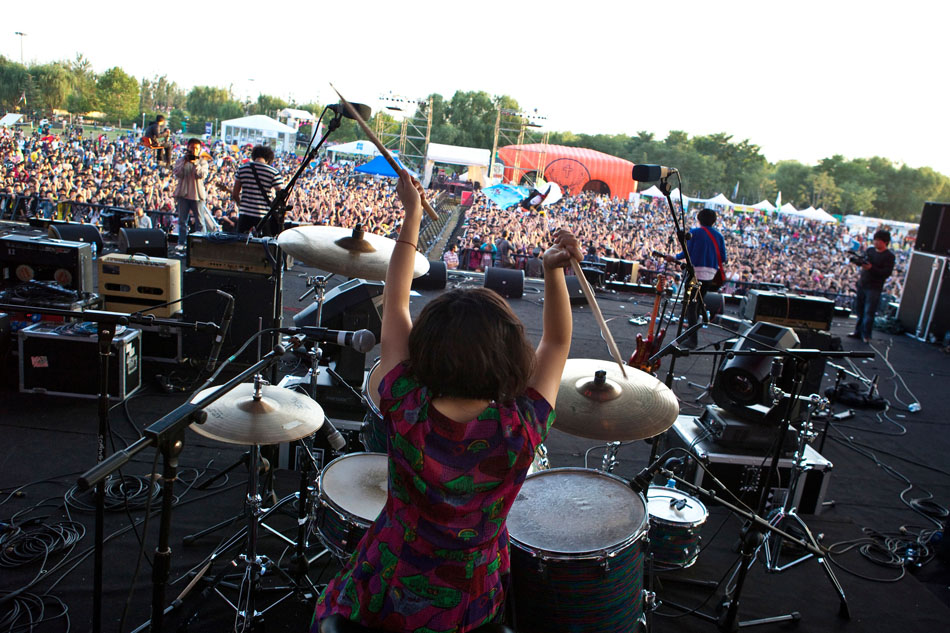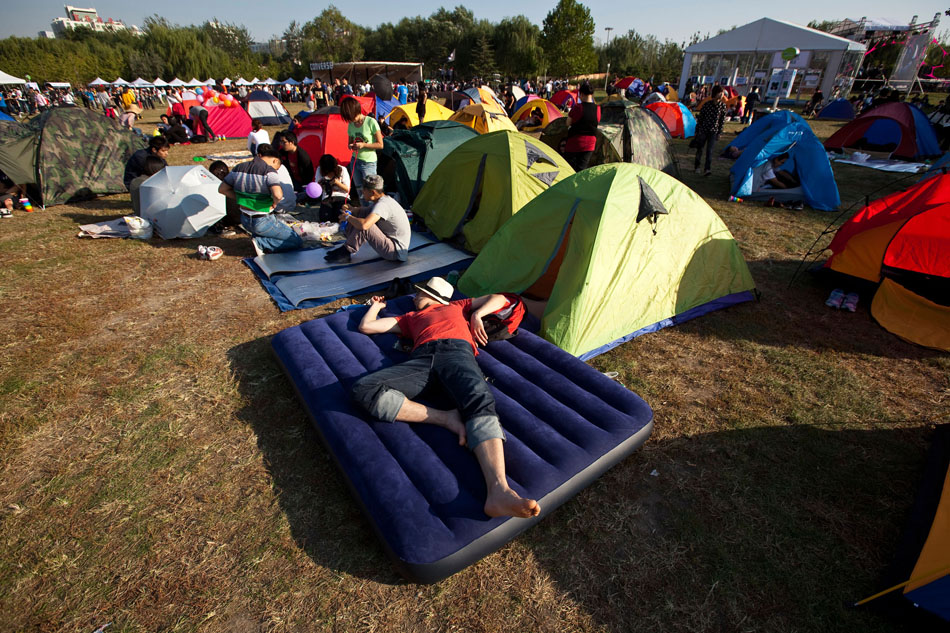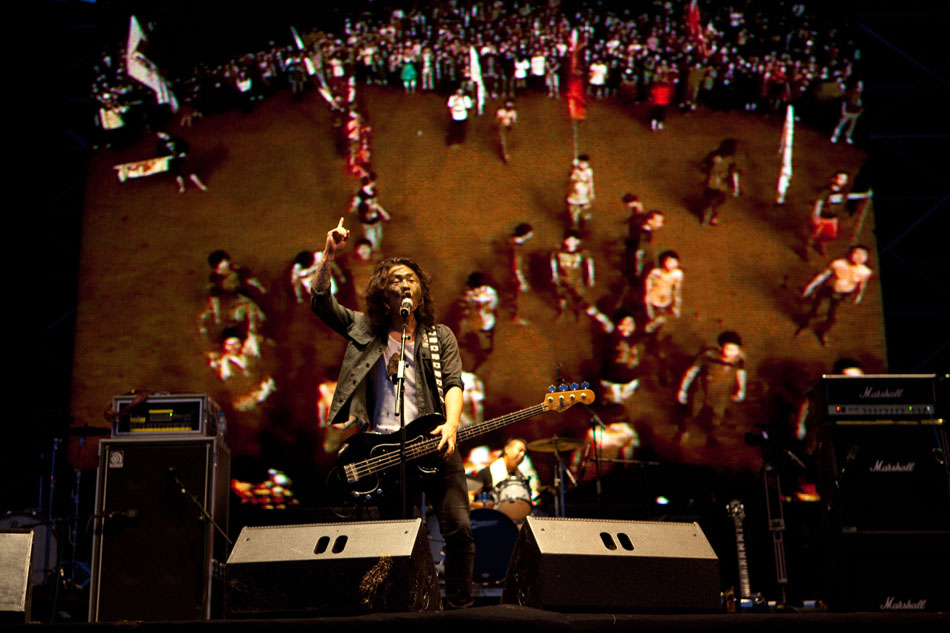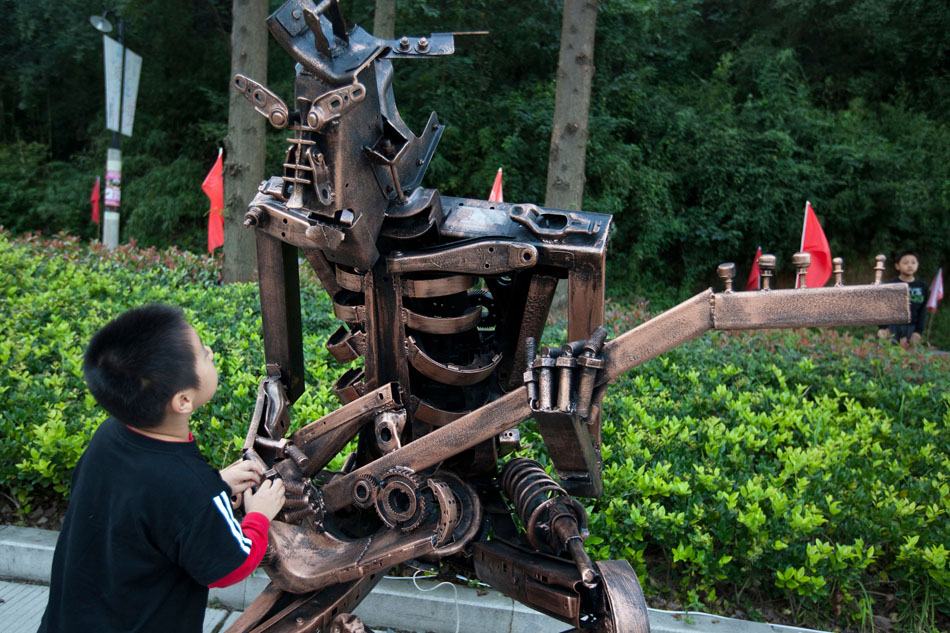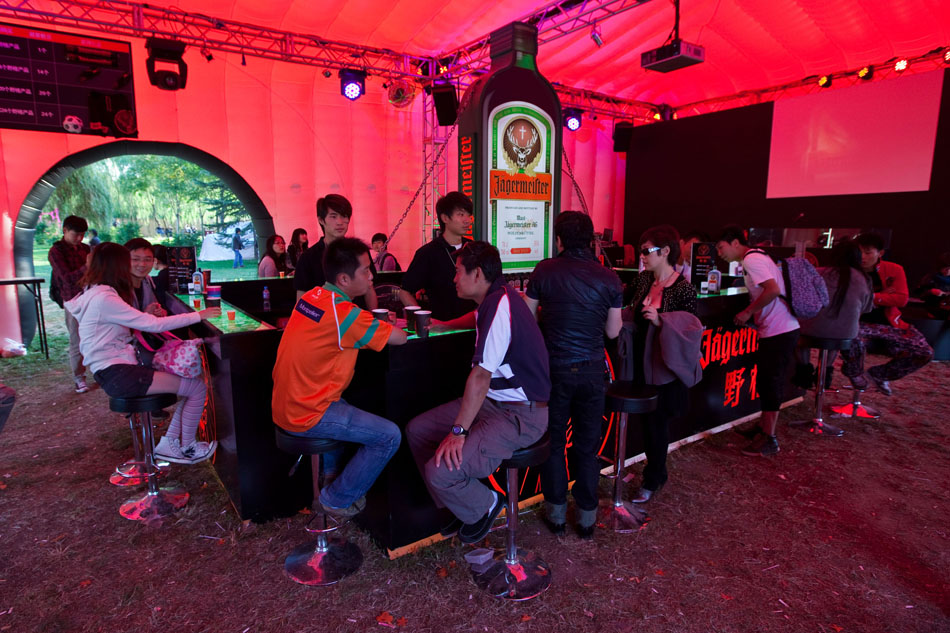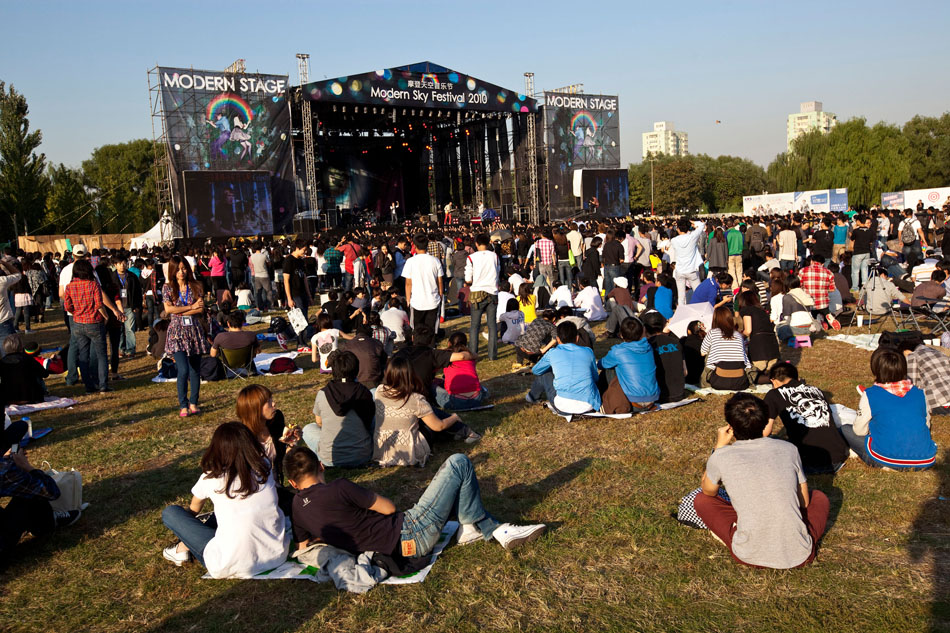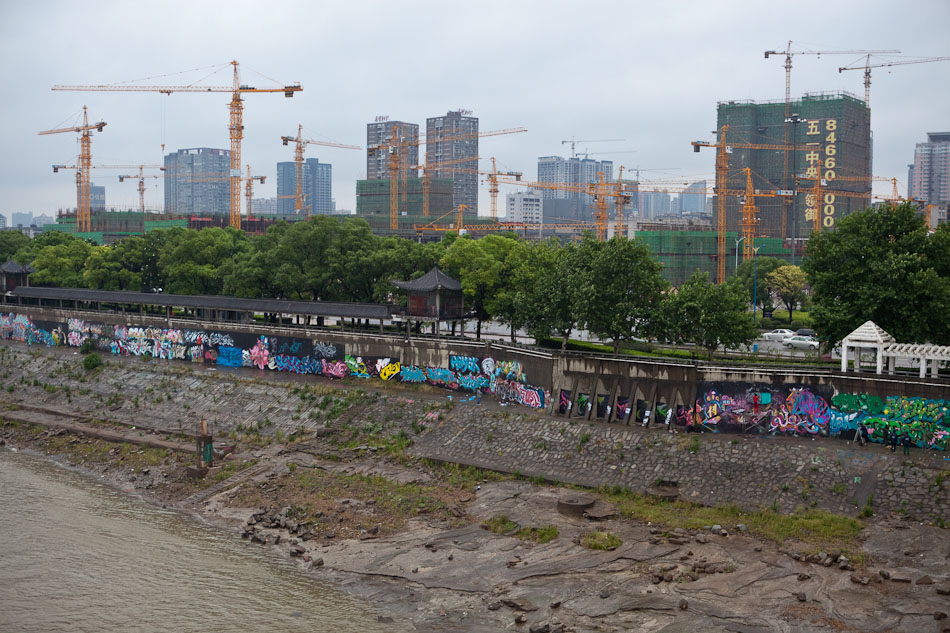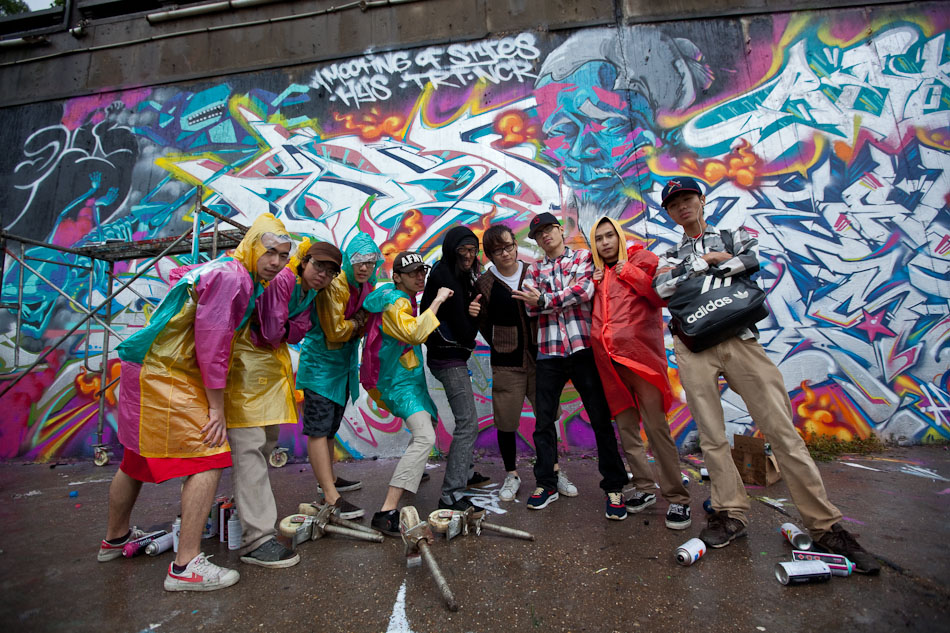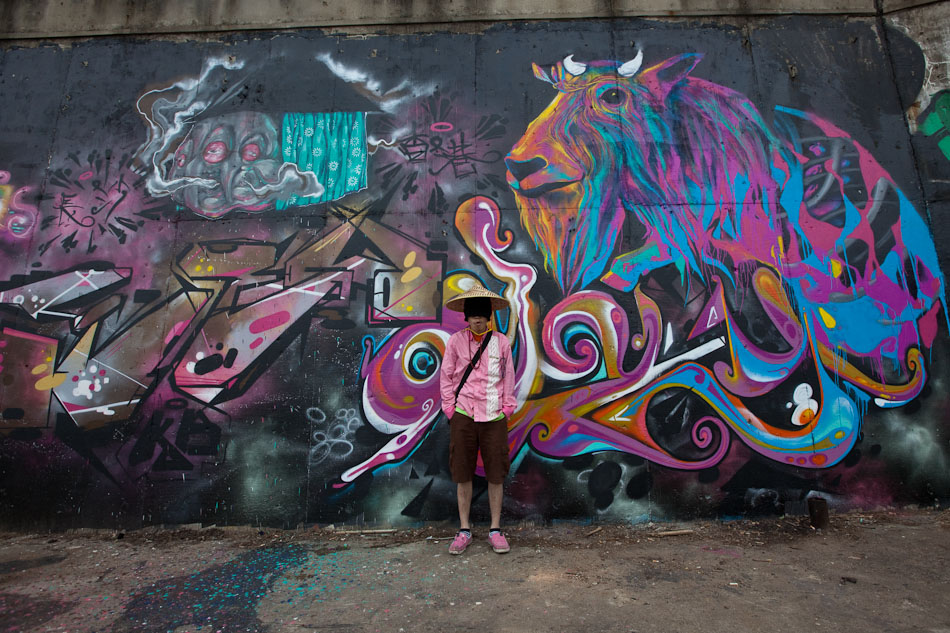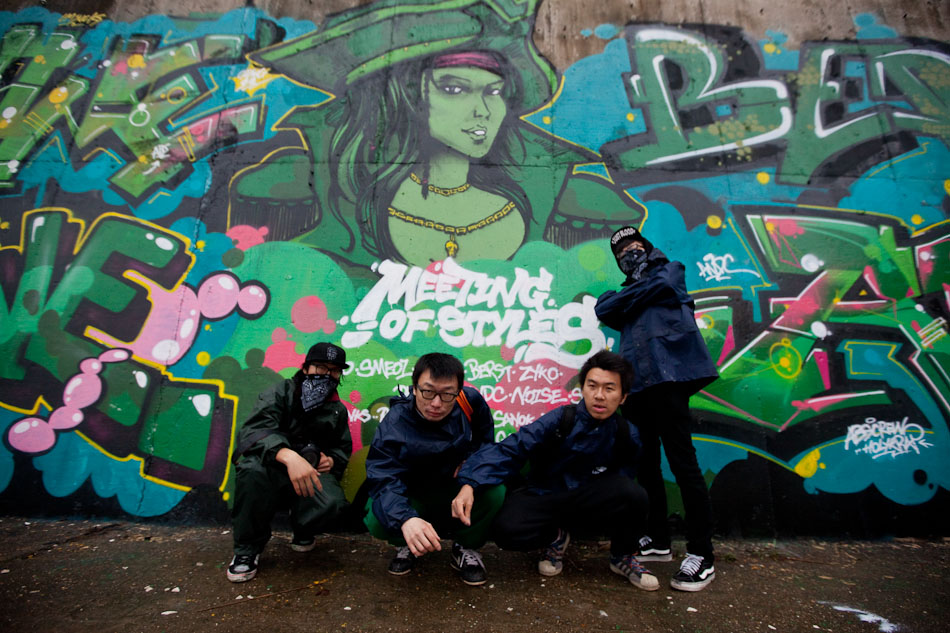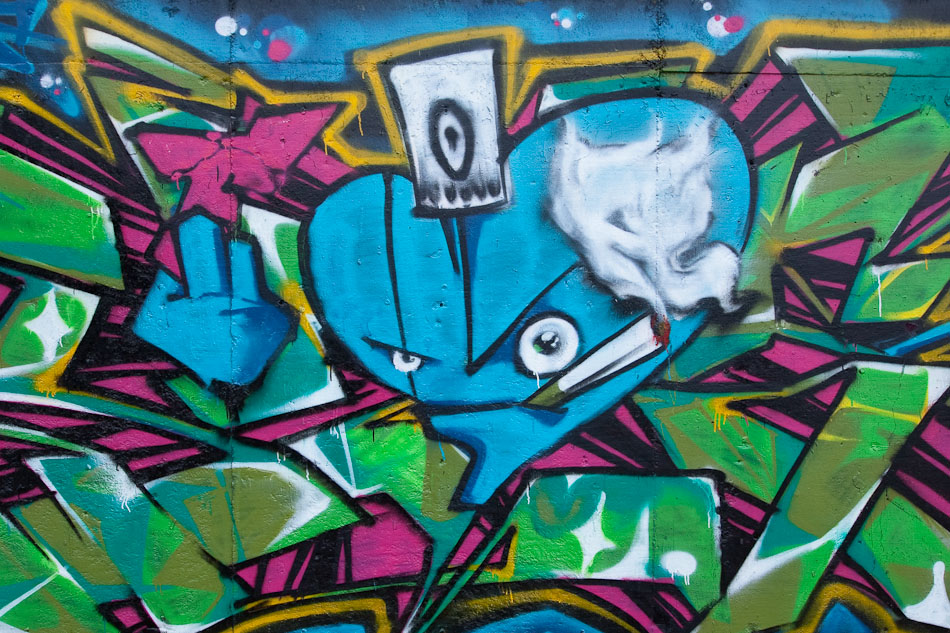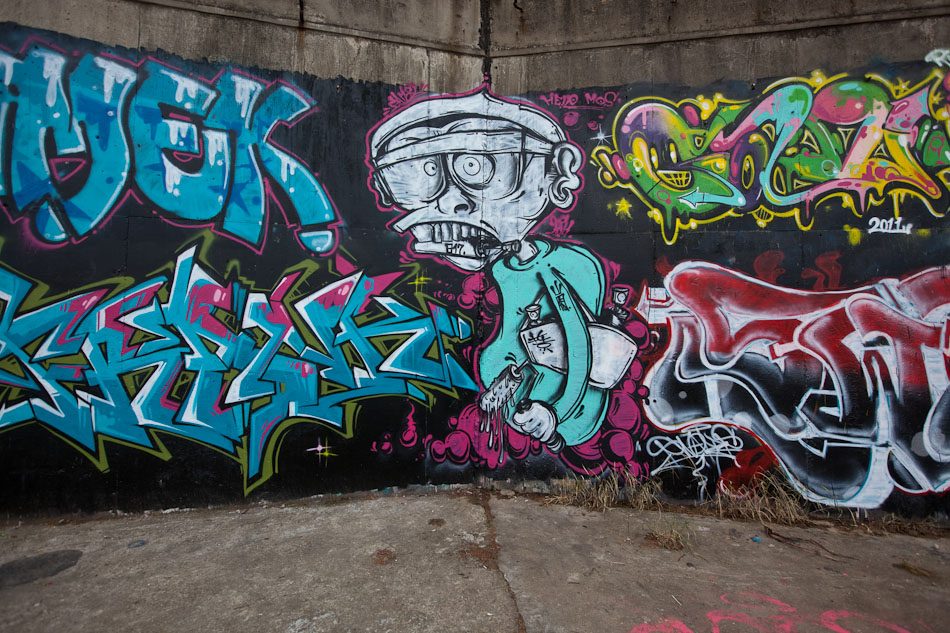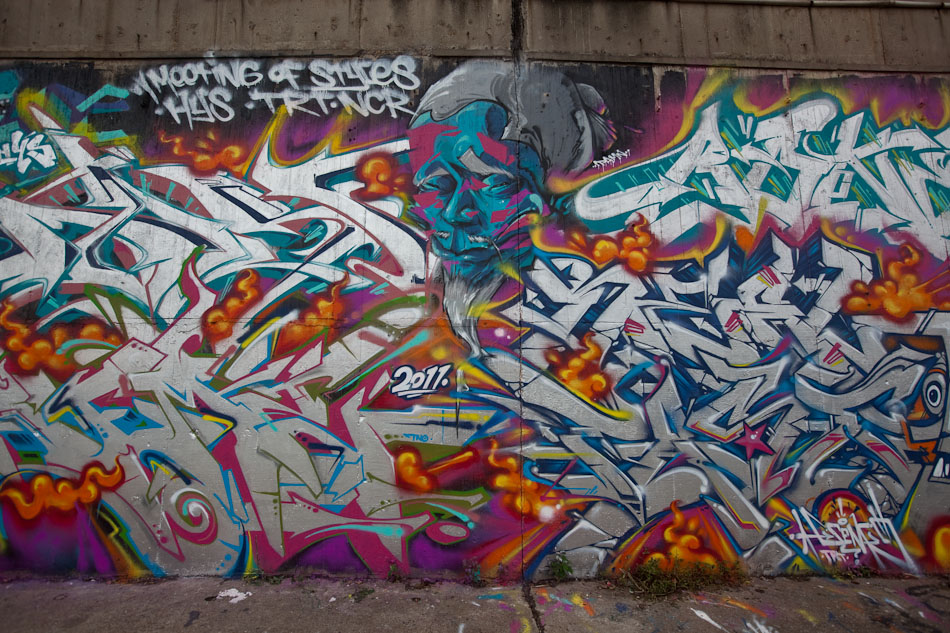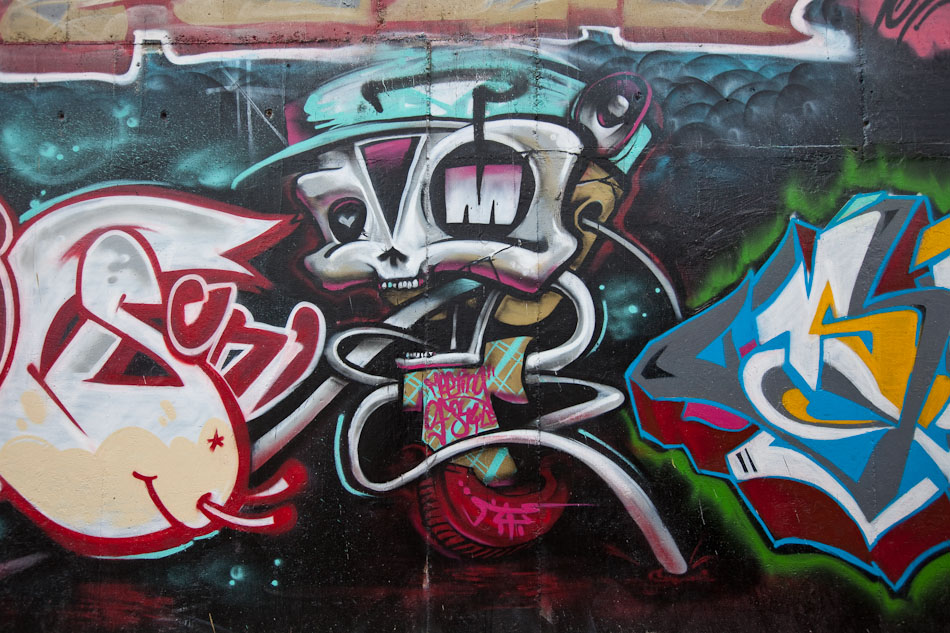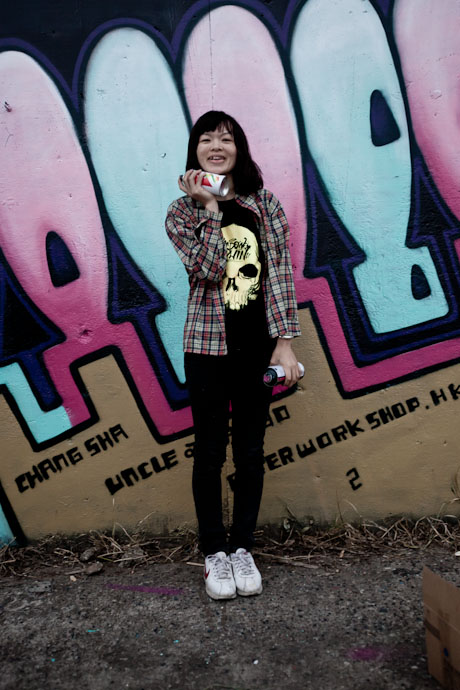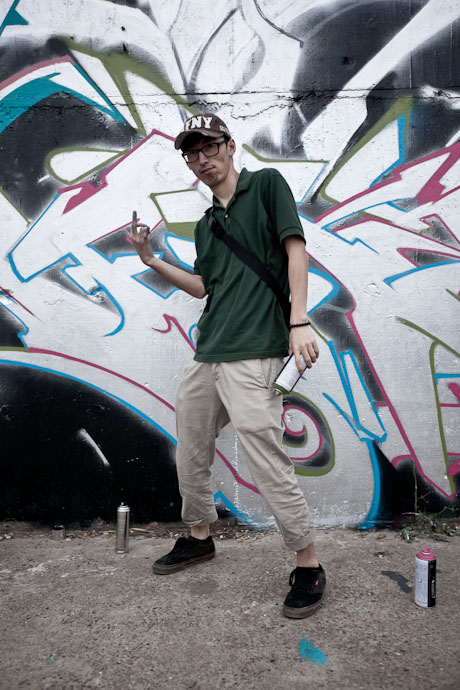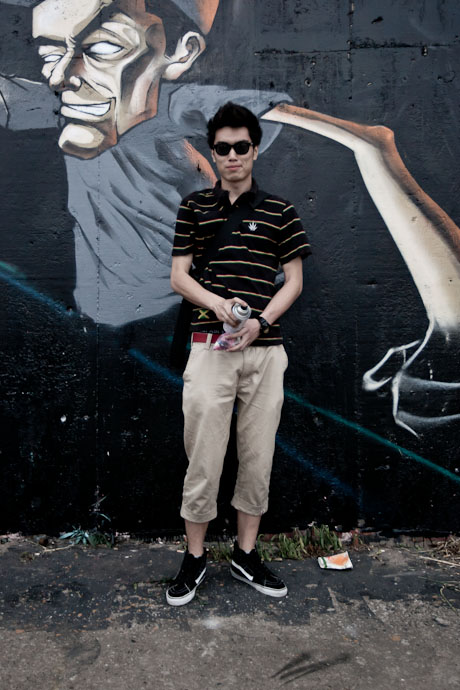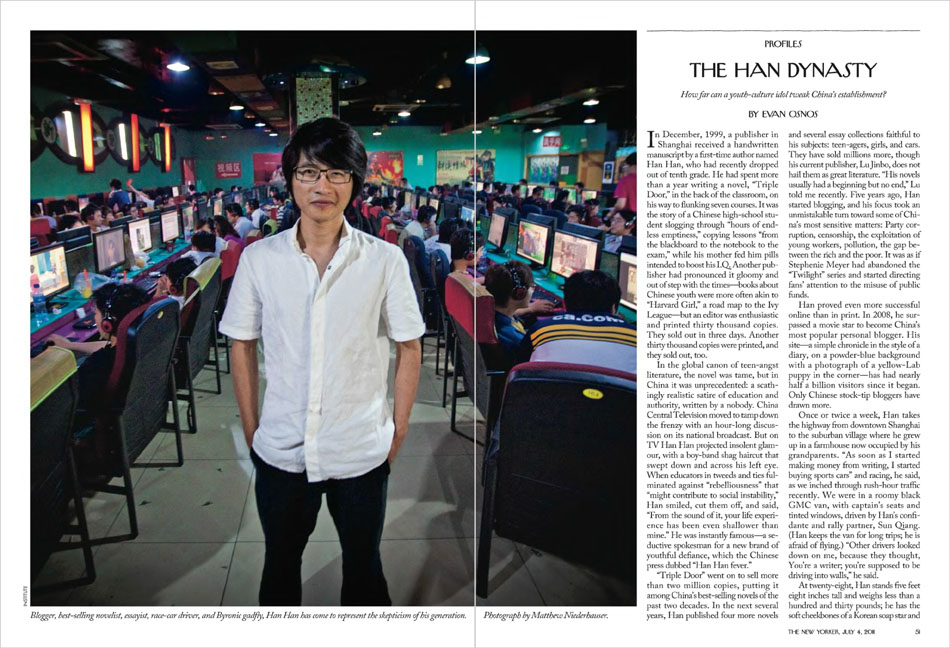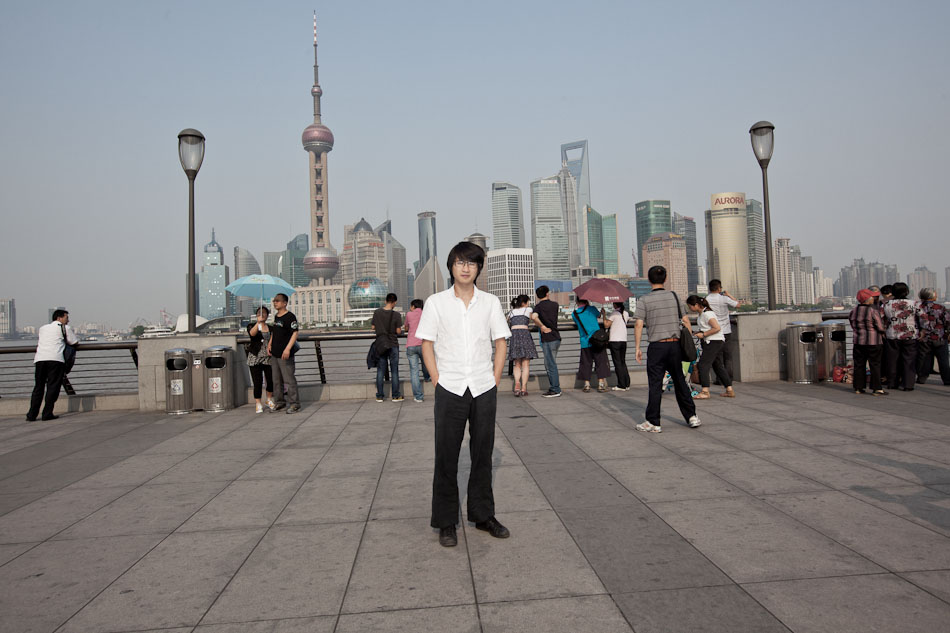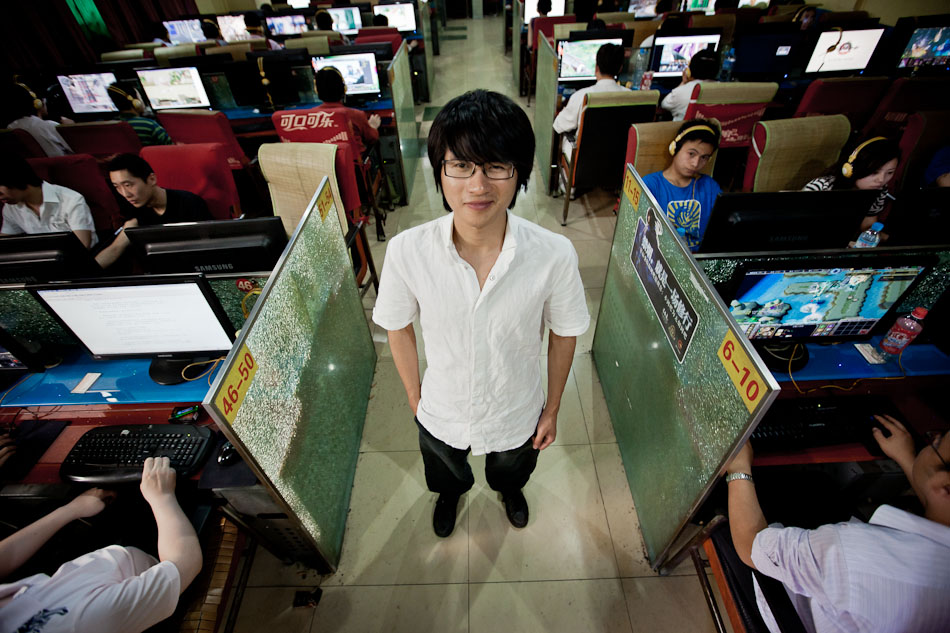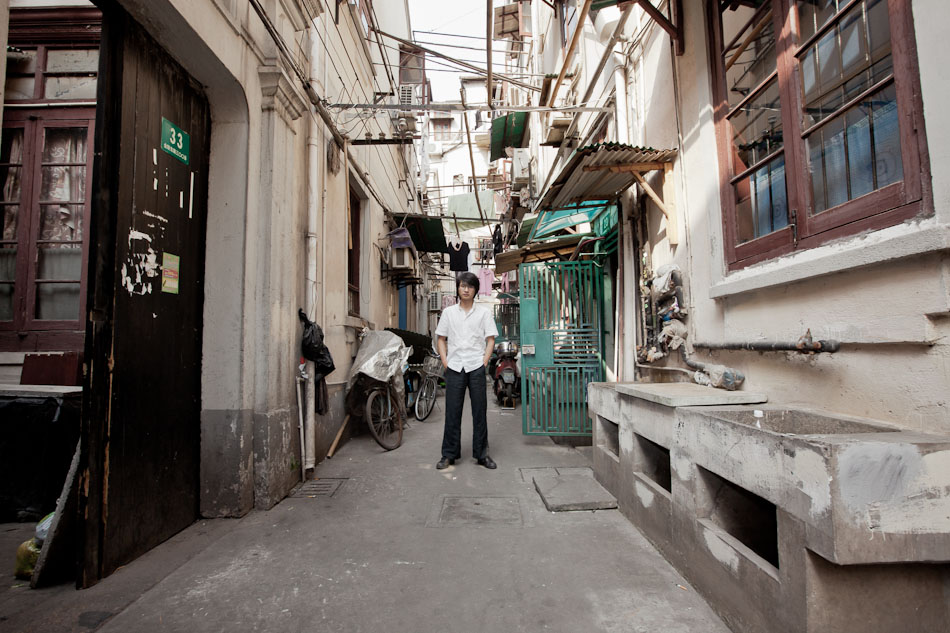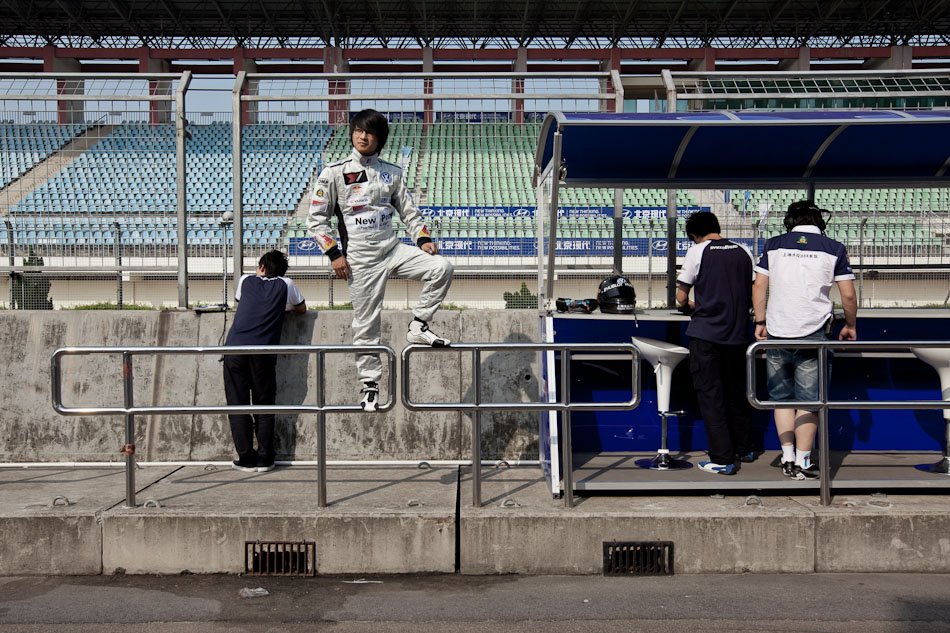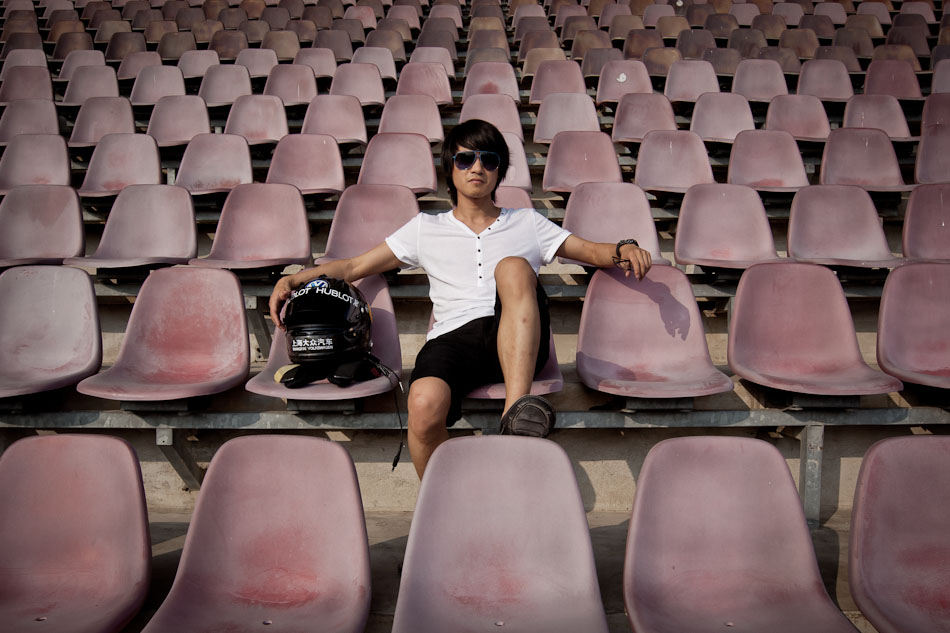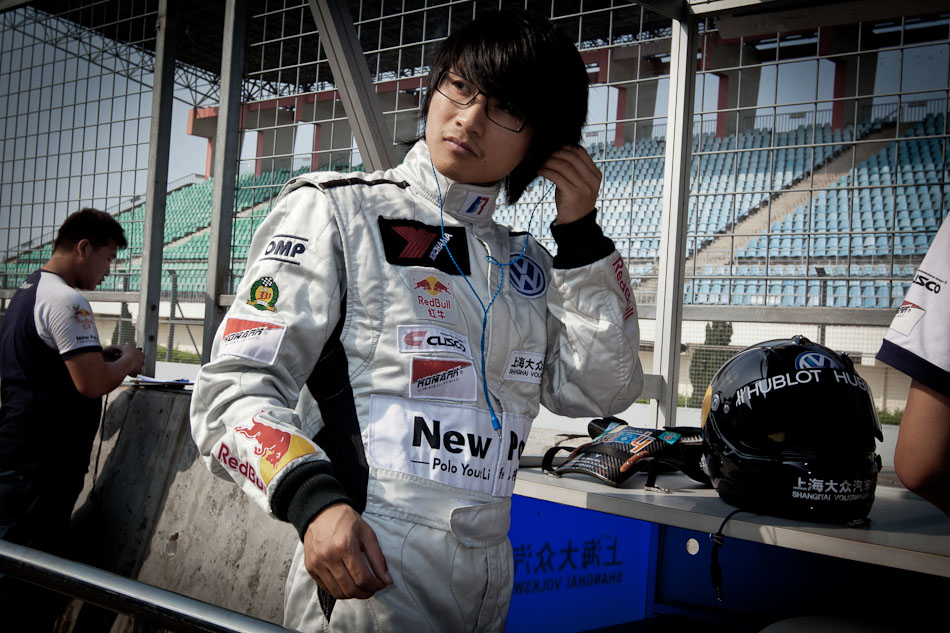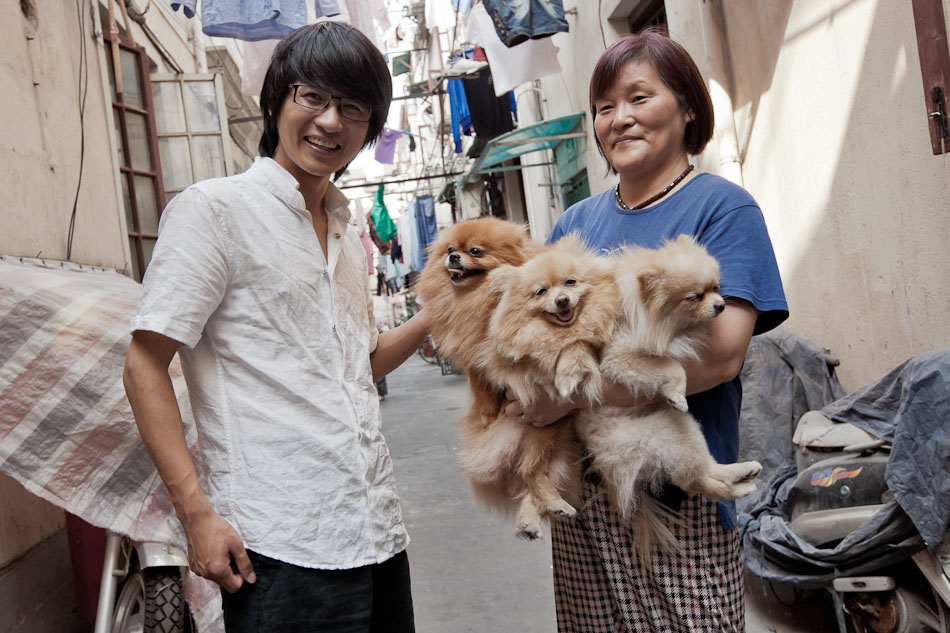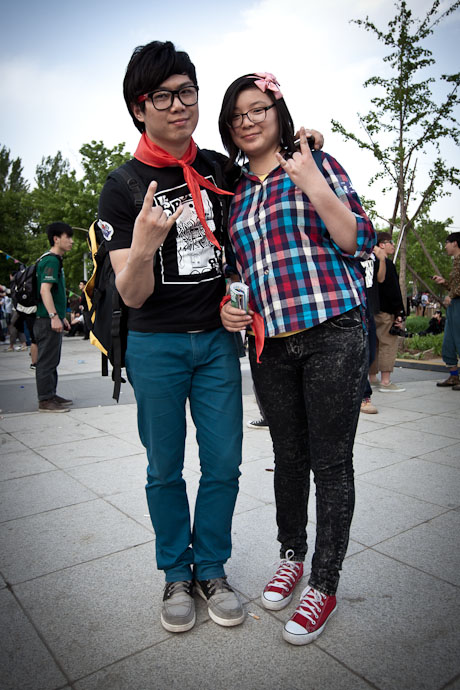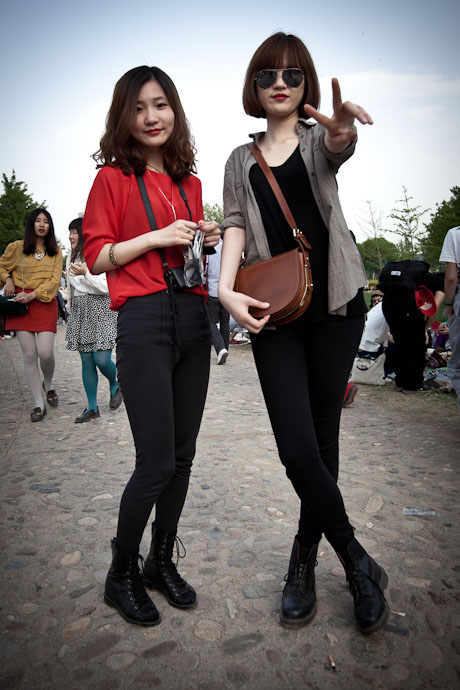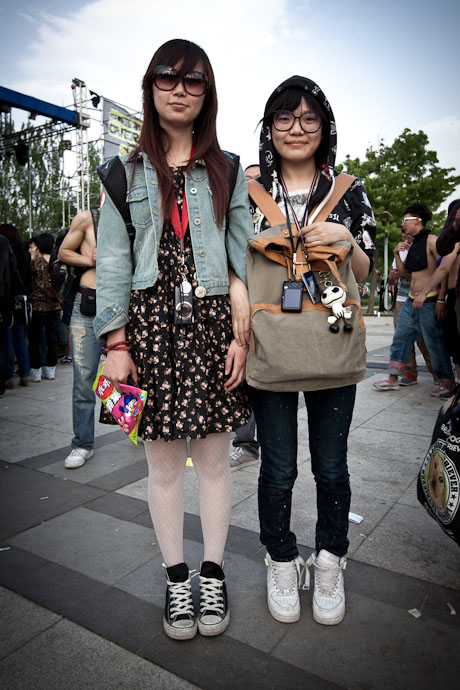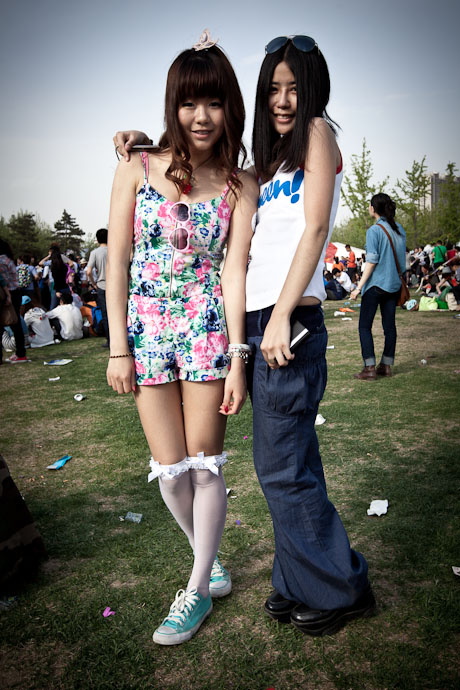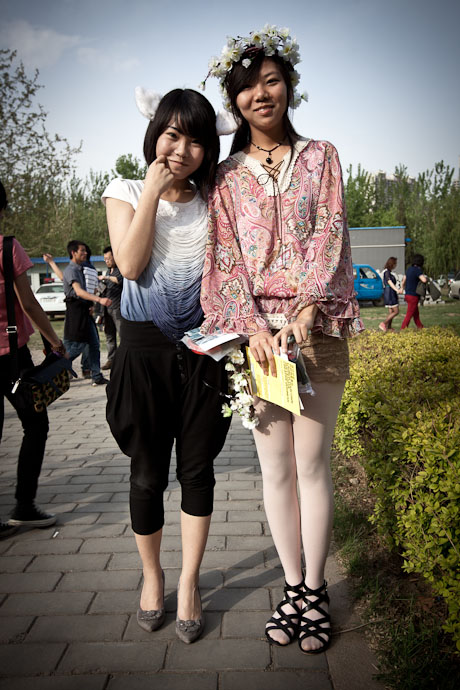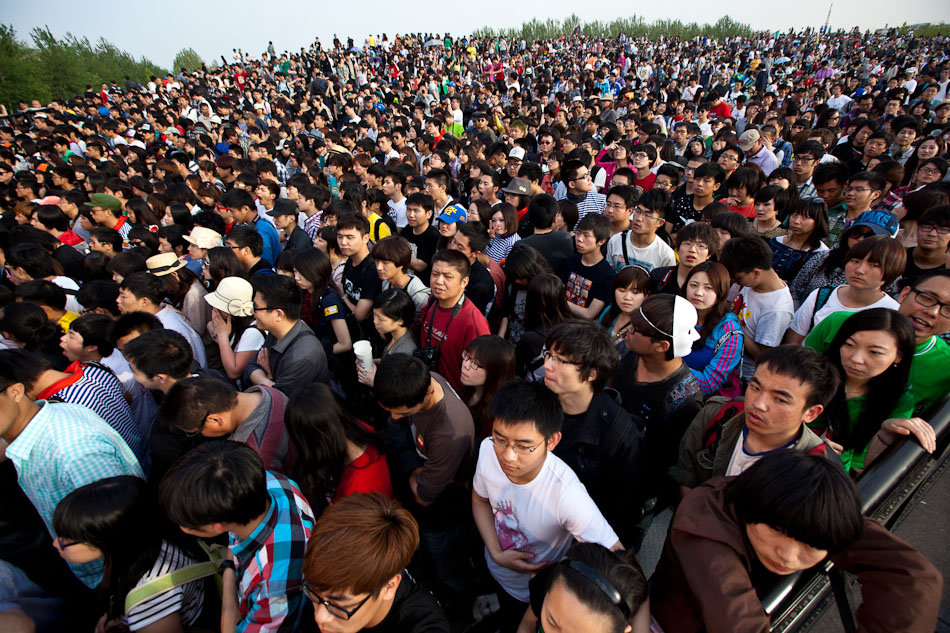May 9, 2011 | Sports, Youth
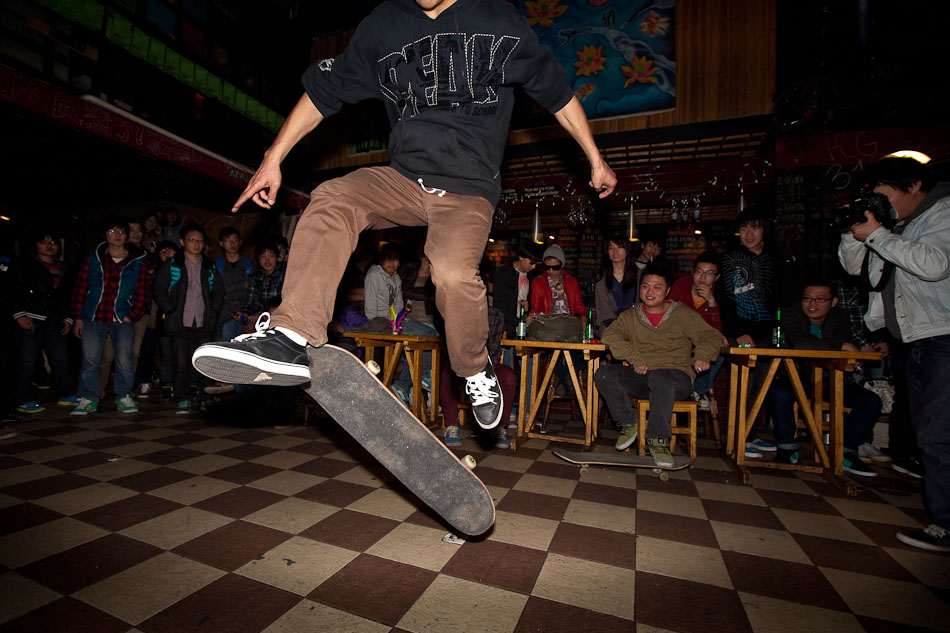
This past month I made a few visits to Wuhan to check out their hip hop scene. Much like Beijing, there are a lot of connections between various alternative music and sporting communities. Many of the MCs in Wuhan are also avid skateboarders, including MC Big Dog/大狗, the top freestyler in Wuhan and three-time winner of the Iron Mic. On my final night, MC Big Dog hosted the first skateboard night at Vox Livehouse, the preeminent music venue and club in Wuhan. It was a great evening of friendly rivalries and other shenanigans. The portraits below are the bulk of the competitors who took part in the evening activities. These are some of the faces of Chinese adolescents who are breaking boundaries in urban areas around the country. Wuhan is an incredible place with a very thoughtful and forward thinking youth movement. They stick to their guns and abide by the Vox Livehouse motto: Voice of Youth, Voice of Freedom!
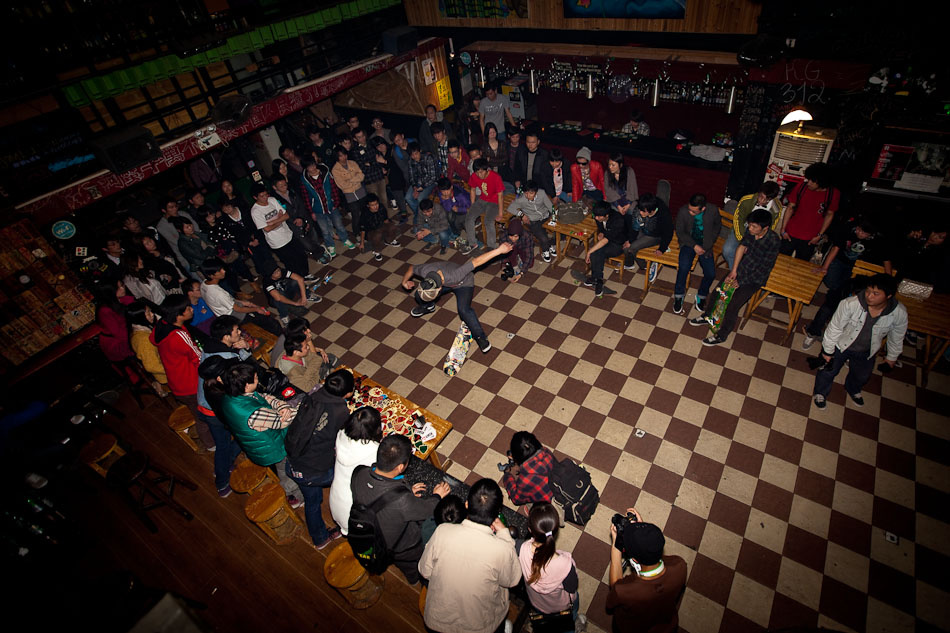
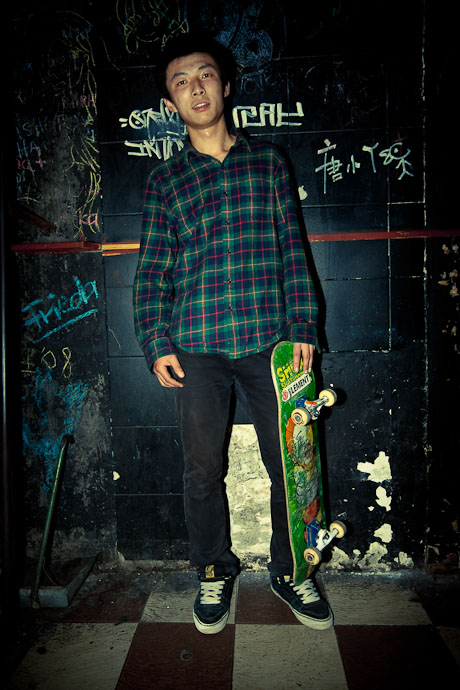
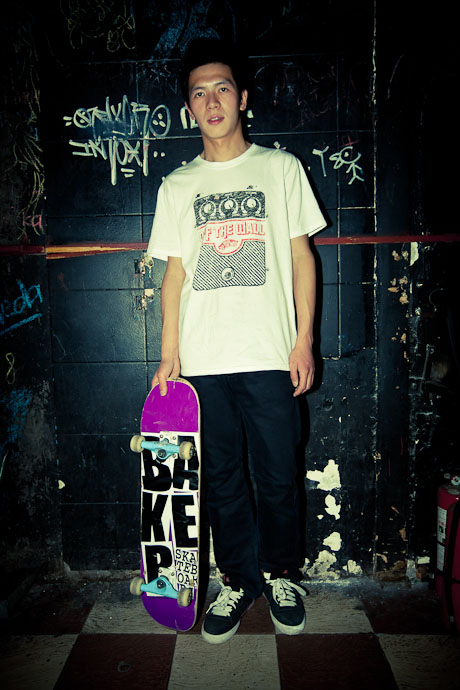
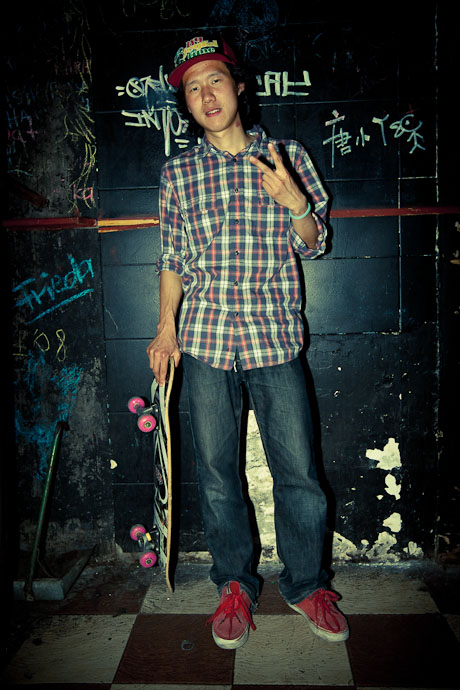
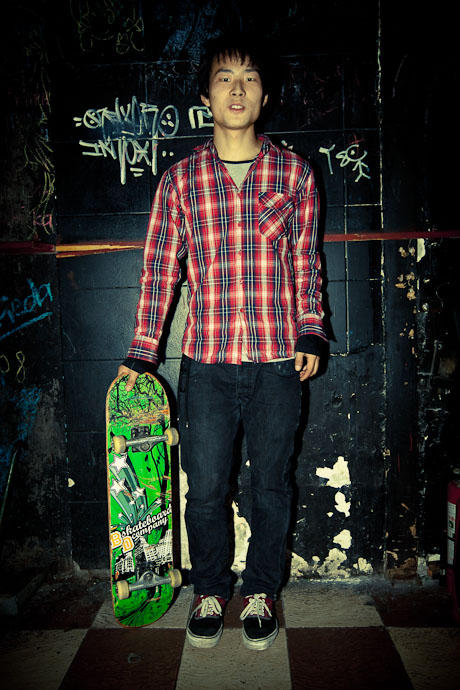
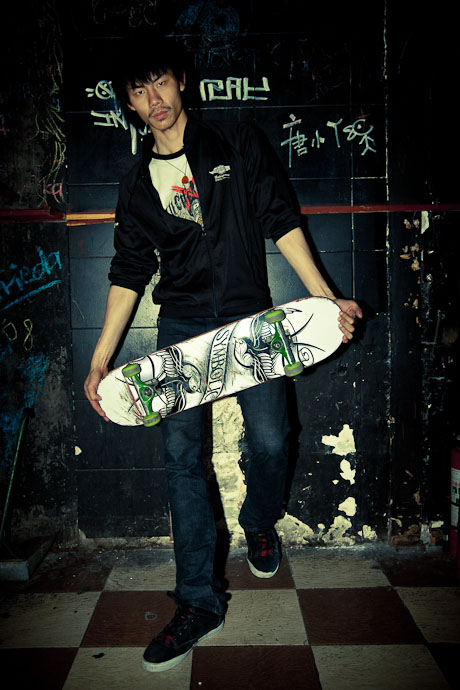
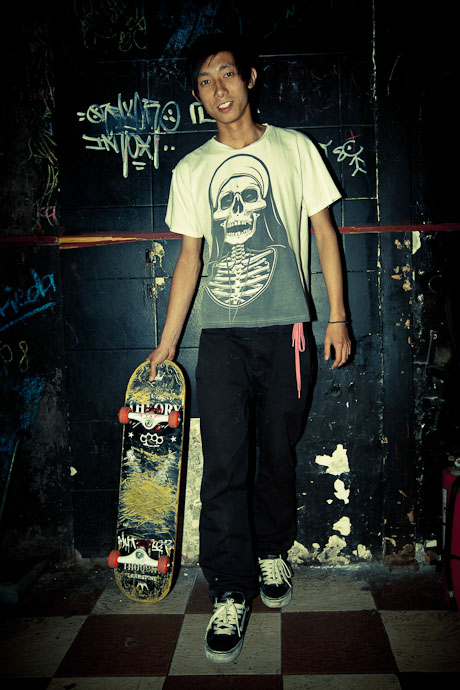
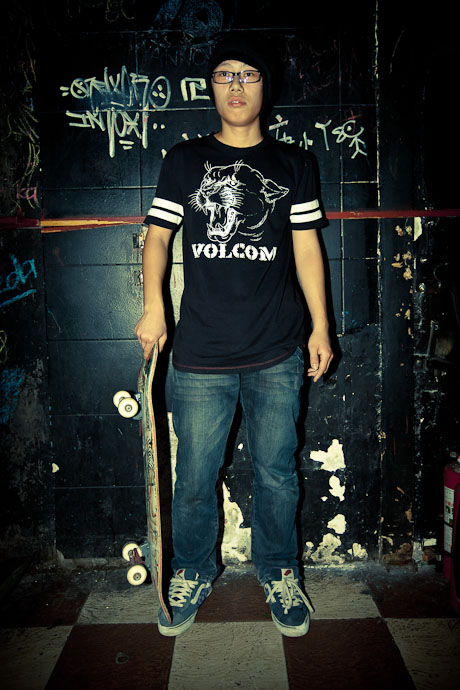
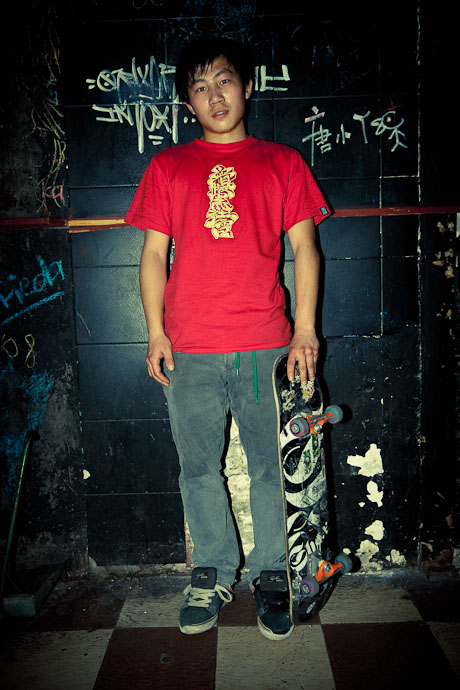
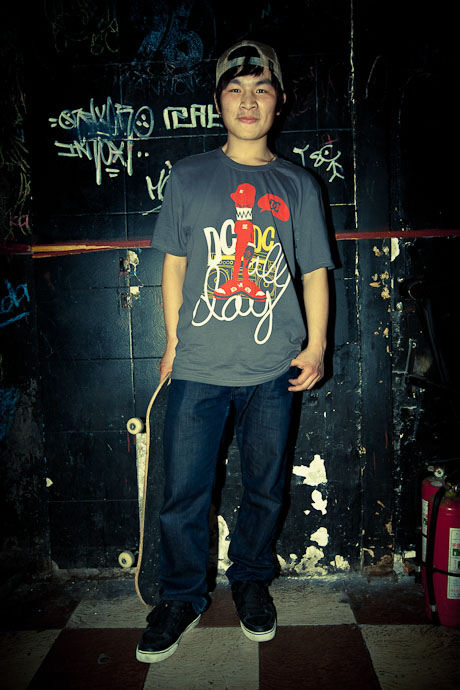
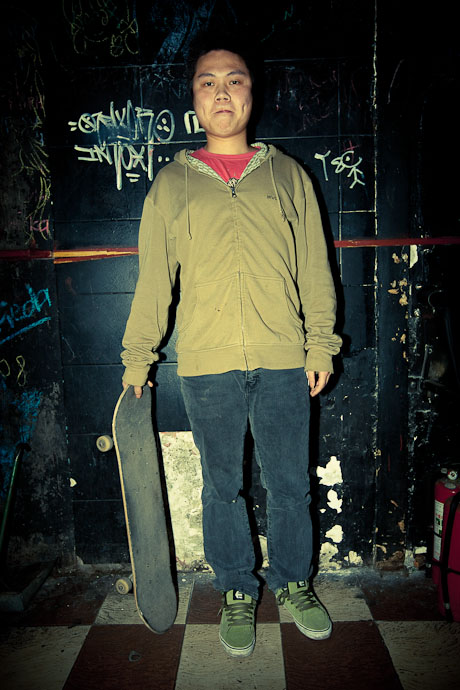

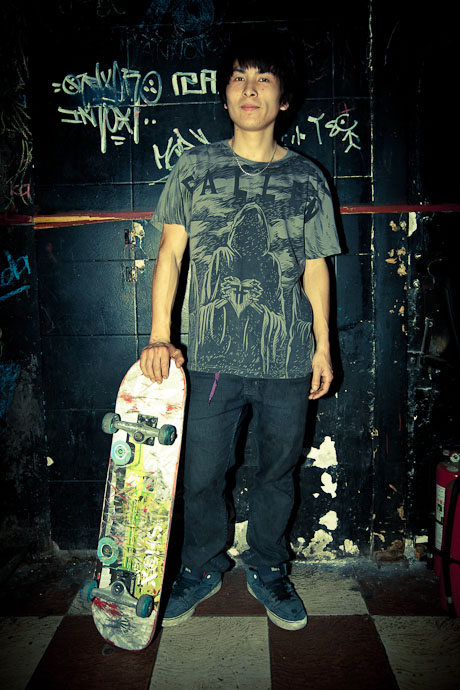
Nov 26, 2010 | Clippings, Music, Youth
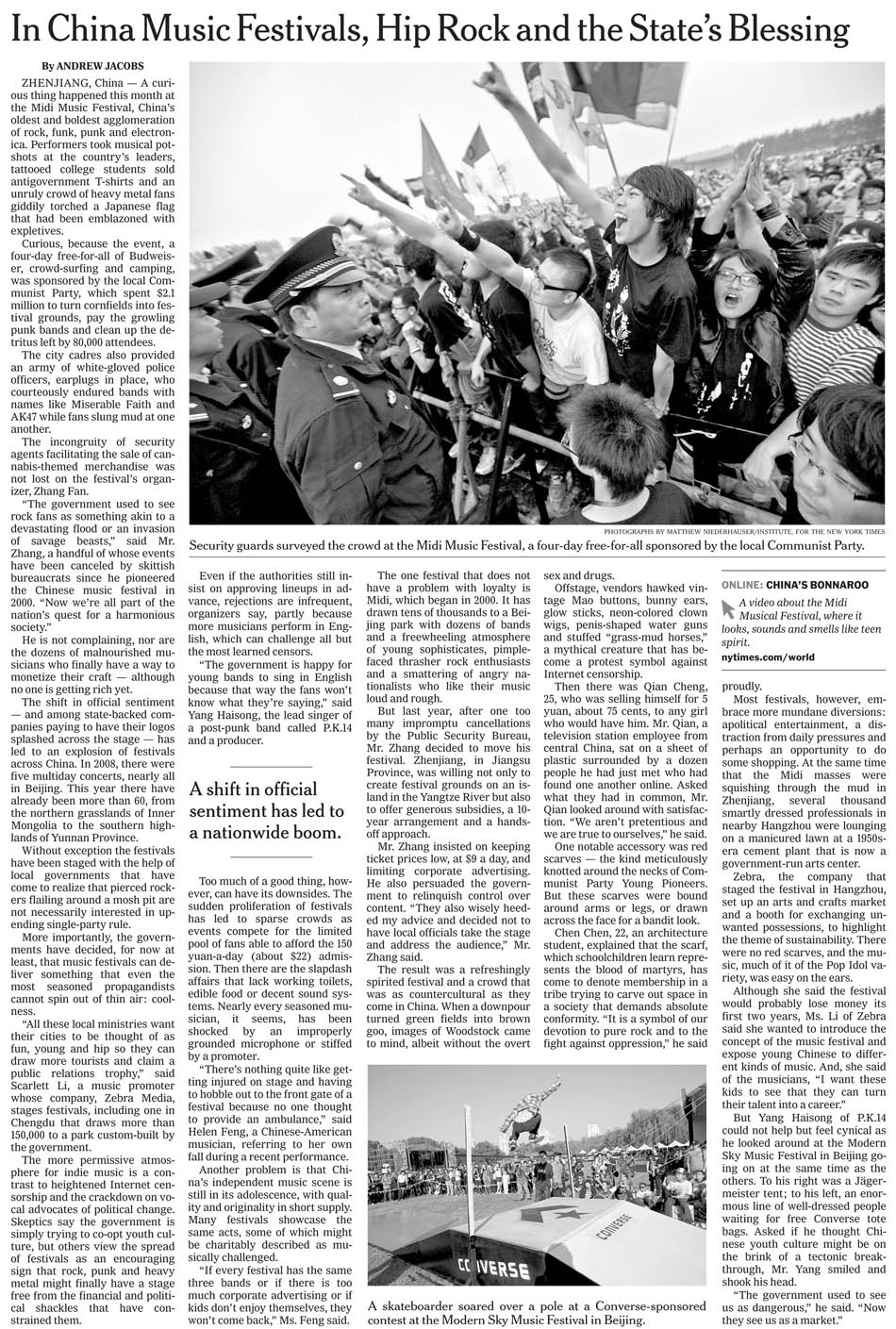
I should have blogged about this last month, but I only just received a PDF of the New York Times print version of my work on the explosion of music festivals across China. Such an article was a long time coming and received the usual criticisms aimed at mainstream media coverage of the alternative music scene in China from industry watchers such as China Music Radar and Beijing Daze. Obviously it was too short to cover all the historical and social nuances bound up with proliferation of music festivals across China. Unfortunately the New York Times rarely publishes extended think pieces that such a subject deserves. I actually read a longer version of Andrew Jacob’s first draft which was much better, but the editors decided to cut it down as they are wont to do in this day and age – apparently they feel readers can’t last more than a thousand words in a row. Still, I was really happy with the article and thought Andrew did a quality job trying to introduce the China music festival scene to the rest of the world with his insightful descriptions and awesome quotes. My favorite came from Zhang Fan of MIDI fame, “The government used to see rock fans as something akin to a devastating flood or an invasion of savage beasts, now we’re all part of the nation’s quest for a harmonious society.” Some of the other issues Andrew addresses such as the paradox of having government-backed festivals filled with subversive bands as well as the rising commercialism of the entire alternative music scene also needed to be laid out. Yang Haisong, of P.K. 14 fame, really nailed it on the head with his closing comment, “The government used to see us as dangerous, now they see us as a market.” I feel an approach employed by the Chinese state where they try to appropriate cultural scenes rather than empower them through censorship is becoming the norm. It is happening in the contemporary art scene in Beijing’s 798 art district and more and more with bands taking on corporate sponsorships and other branding opportunities. When the artists and musicians are making more money, they have less to complain about and more at risk by creating controversial or outspoken material. It is a savvy step forward by the Chinese state and goes hand in hand with their other attempts to spin media rather than quash it. The Beijing Daze post gets into this quite a bit as well. Still, no matter what, I am a huge fan of the spread of music festivals in China. The only thing that is needed right now is quality production and more bands. The same performers can’t keep recycling through the festivals. A large injection of new musical blood is needed. Hopefully there are more diamonds in the rough amongst all the second-tier cities around China who are just opening up their ears to the latest sounds coming out of Beijing, Shanghai, Guangzhou and Wuhan. Otherwise there are still too many reports of badly planned festivals with no toilets and crappy sound systems. Check out these critiques by Helen Feng, Pity the Cool, and Beijing Today. Hopefully we are just experiencing the birthing pains of the China music festival circuit. Also check out this great extended piece on the first musical festival in Nanjing and an extended interview with Scarlett Li, the brains behind the Zebra Festival movement. Unfortunately there is no online slideshow in addition to the video I produced for the New York Times website, so I attached my favorite shots to this post.
